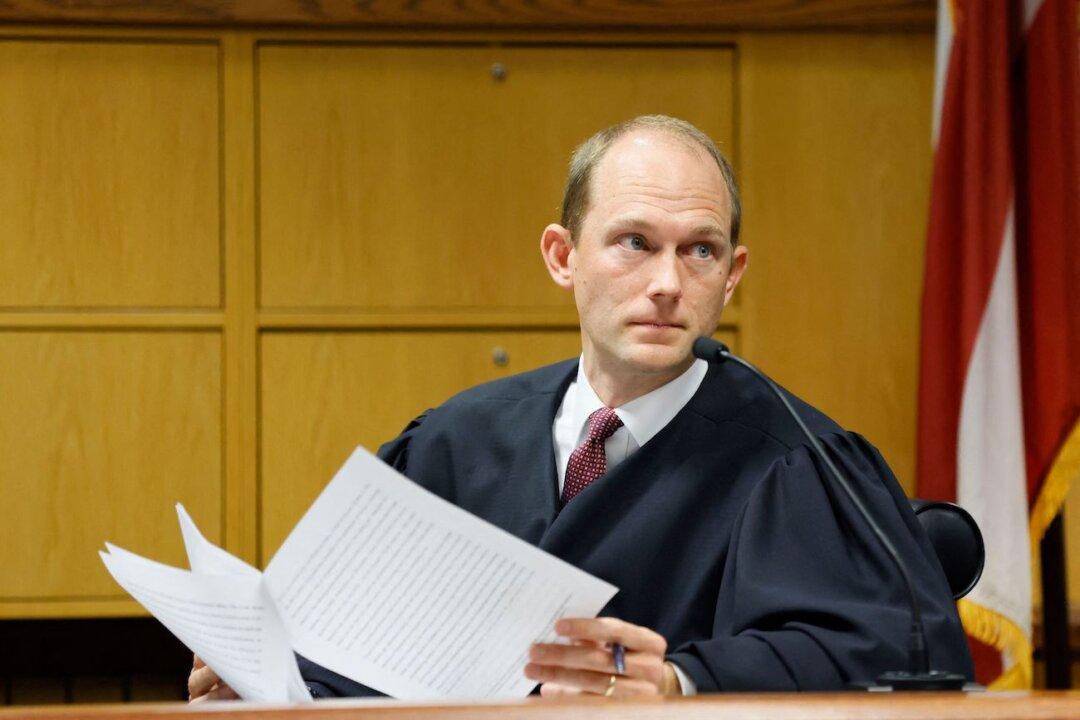Judge Scott McAfee, presiding over the case against Former President Trump and 18 co-defendants for their challenge of the 2020 election results, rejected a co-defendant’s motion to dismiss the indictment.
Kenneth Chesebro had been an attorney for President Trump in the 2020 challenge, and proposed using alternate slates of electors in several states where they suspected election fraud. He was one of several lawyers charged alongside the former president in Fulton County. On Aug. 14, a grand jury handed up a 98-page, 41-county indictment against the 19 individuals.





